2018 The British & American Gut Project reviewed the diets of more than 10,000 “citizen scientists,” from United States, the United Kingdom, and Australia, assessing dietary patterns associated with different health outcomes. What did we learn? Let’s signpost fibre, polyphenols and “other aspects of your health.”
One late sign post to fermented foods. As Dr Mosley celebrates and Dr Spector promotes – The 4Ks are : Kefir, Kombucha , Kimchi and Kraut (sauer) and most accessible yogurt! All covered at length in SpoonFed and by Zoe.
Most adults fall well short of the 30-35g a day fibre recommended, well short of the “five-a-day” fruit and veg mantra and even fewer have considered the role of fibre and their gut! As ever, it is never that simple. It is not just quantity that matters. What this study and Dr Tim Spector keep banging on about is that it is plant diversity. This is because plants contain substances called prebiotics (and other carbohydrates and polyphenols) which provide fuel for your “good” gut bugs. Different plants, different fibre, quid pro quo, more fibre, more “good” gut bugs. More “good” gut bugs, and we can all be healthier, happier and live longer. (Do take note of a slow and steady transition to increasing the fibre in your diets.)
What this study showed us was that people who ate the largest variety of plant foods were found to have the healthiest microbiomes, that is the microbe environment that exists naturally in our guts and were likely to report the best health outcomes.
A plant-based diet appears to be beneficial for human health by promoting the development of more diverse and stable microbial systems.
Tomova et al., (2019: 47)
Polyphenols
Two reasons to support why you may be interested in eating more plants?
Plants contain fibre. They are also rich in defence chemicals called polyphenols. Polyphenols, responsible for the colours of many plants, also happen to have antioxidant and anti-inflammatory properties.
Back to the findings. The study suggested that 30 was the optimum number of different plants* for fibre diversity as there wasn’t much improvement when you increased from 30 to 35 or 40.
Plants: vegs, legumes, grains, nuts, seeds, herbs and spices.
“…other aspects of your health.”
Eating 30 different plants a week can boost the diversity and health of your gut microbiome and in turn, it may affect many other aspects of your health. Not least supporting good immune system function, lowering the risk of inflammation, mental well-being, even longevity, and there is more information and general health commentary shared by “the professionals” at ZOE: 30 plants per week.
Nutrition. Wellness. Habits.
These three threads rarely present themselves independently. After highlighting nutrition and wellness, let’s look at habits.
Experimenting with and exploring food is a core message of both Dr Mosley and Dr Spector. In fact, Dr Spectors 12 point plan, eating “diverse foods (diverse polyphenols and fibre), mainly plants, without added chemicals,” is the first point. Soon after, he advises that we “don’t get into food ruts: diversify and experiment.” He advises “real food, not supplements,” and to “avoid ultra-processed foods with over ten ingredients.” However, information is some way short of action. Parents, plant 30+ curious people, would benefit from support and need “nudging.”
Who am I to challenge the findings of the The British & American Gut Project however I am having fun broadening, experimenting and exploring with food, slowing down with food, specifically my plants (VLGNSHS), chatting with our children about plants, meal planning, shopping and cooking with them. I am also surprised by the response from colleagues to these posts.
I’ve seen your posts about gut health. Interesting stuff.
Private DM
Enjoyment and experimenting with food is all part of the bigger “habit” picture of our relationship with food. I am learning about fermented foods and sourdough bread.
I also started a weekly plants-eaten list and I now have a most “common plants” eaten list and tick box – it is here. Make a copy. Keep me posted on how you get on – 81 to beat. Having the list keeps me looking to add new plants, I am learning what is a veg, a legume and fruit, it is encouraging me to stick with x10 favourites: like x10 chewy granola bars and x10 trail mix and mixed bean salad (6) with parsley, coriander, fresh red chilli and lime, salt and pepper. I often do a fly-by peek at the fresh produce reduced section. Today I bought fresh turmeric for 5p! I have no idea what to do with it, but I will and I will report back.
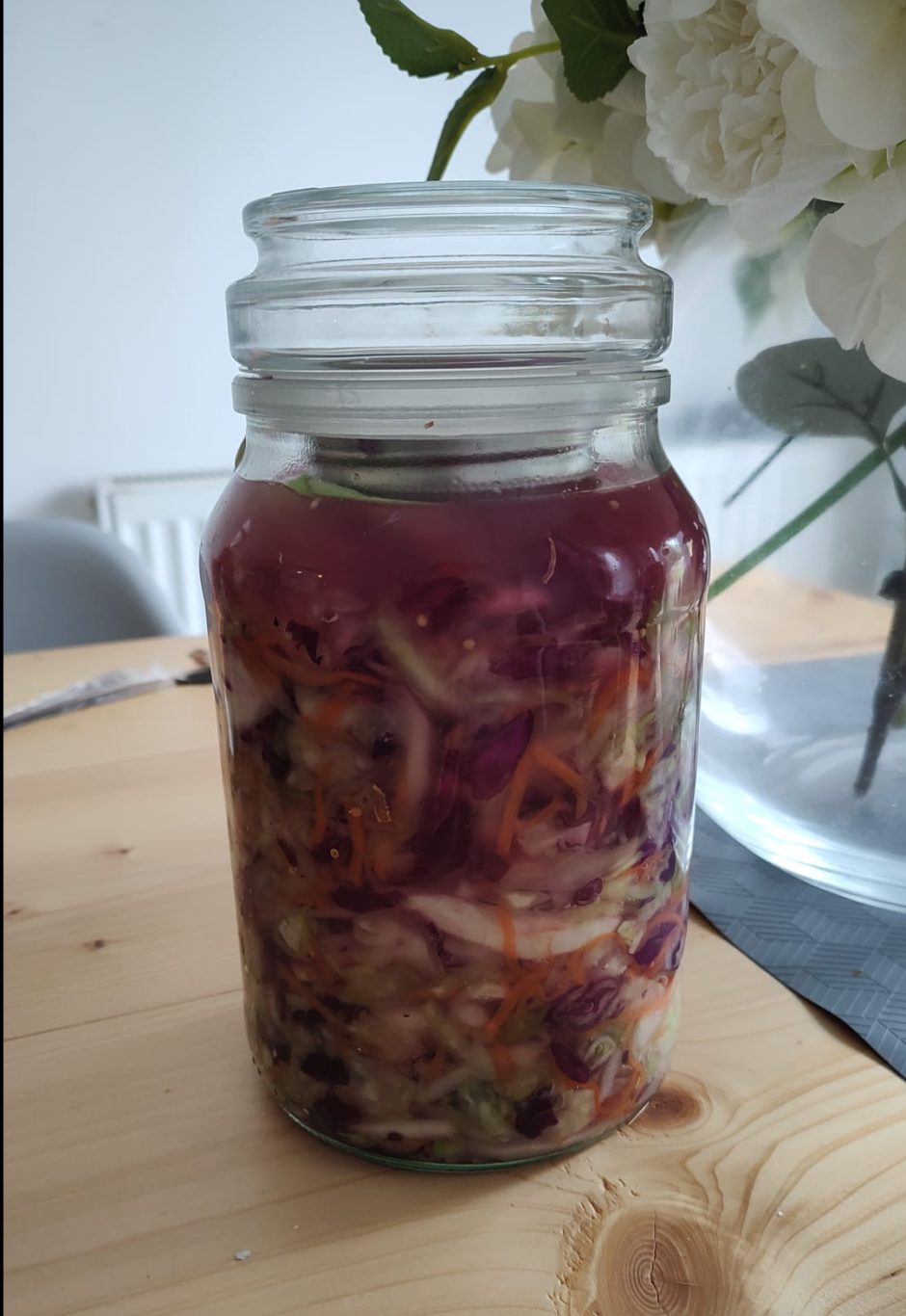
PS Fresh turmeric had a lovely earthy flavour and of course a brilliant and vibrantly orange flesh and turned my veges yellow. I used it much like garlic, adding it to warm olive oil and precooked butternut squash, onions and yellow peppers.
Next on the to do list – making kraut with our eldest with help from Sandor Katz.
Since posting, I continue to add new foods. I have since tried chia seeds (great as a pudding and handy as a cooking thickening agent), samphire (salty and delicious), dates and reintroduced prunes and figs, welks (and they are not even a plant), enjoyed our own kraut (learnt more about fermentation too) and made homebaked bread.

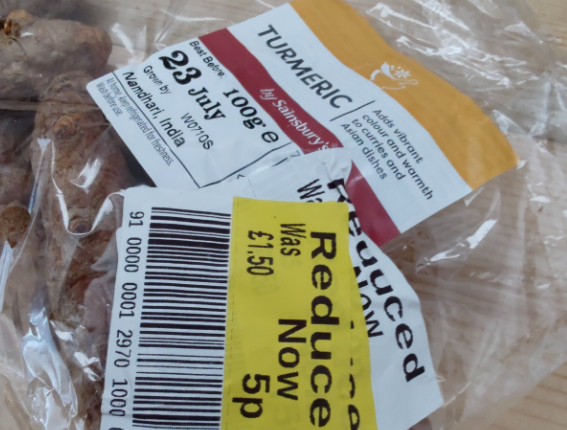
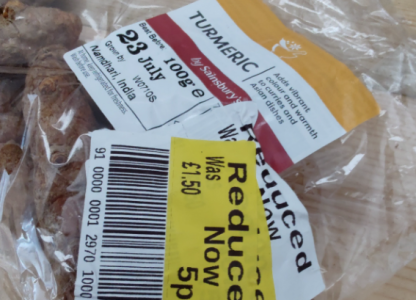
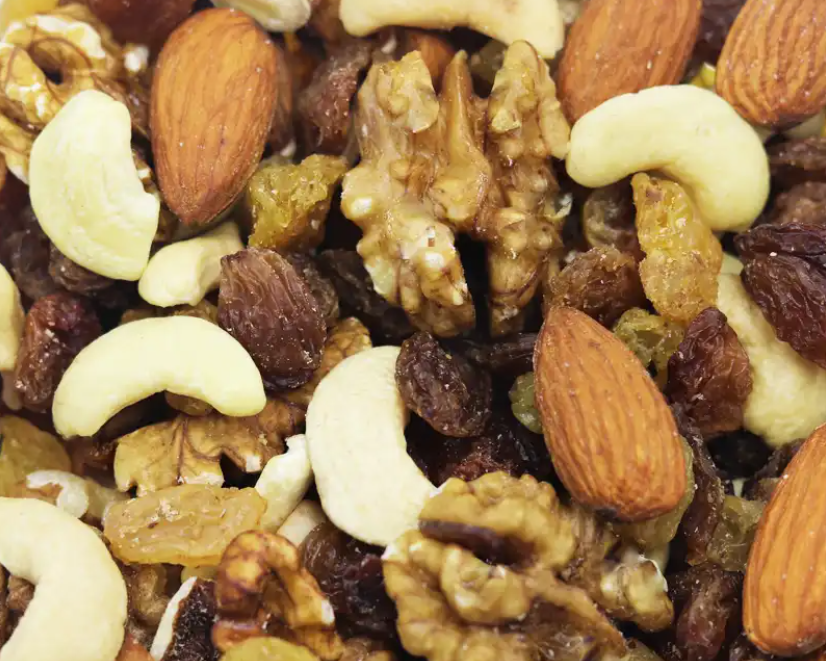
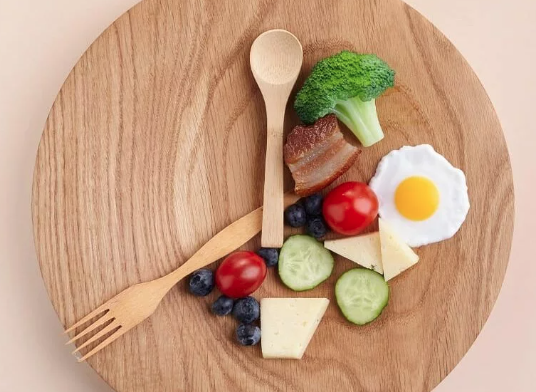
Pingback: Why “whole-foods” and “plant based” – but “not only” – Edventures
Pingback: Day #92 Why “whole-foods” and “plant based” – but “not only” – Edventures
Pingback: Day #93 Why “whole-foods” and “plant based” – but “not only” – Edventures
Pingback: Legumes – starting with beans (part I) – Edventures
Pingback: I am going nuts – losing fifty pounds Day #62 – Edventures
Pingback: Day #93 Why “whole-foods” and “plant based” – but “not only” – Edventures